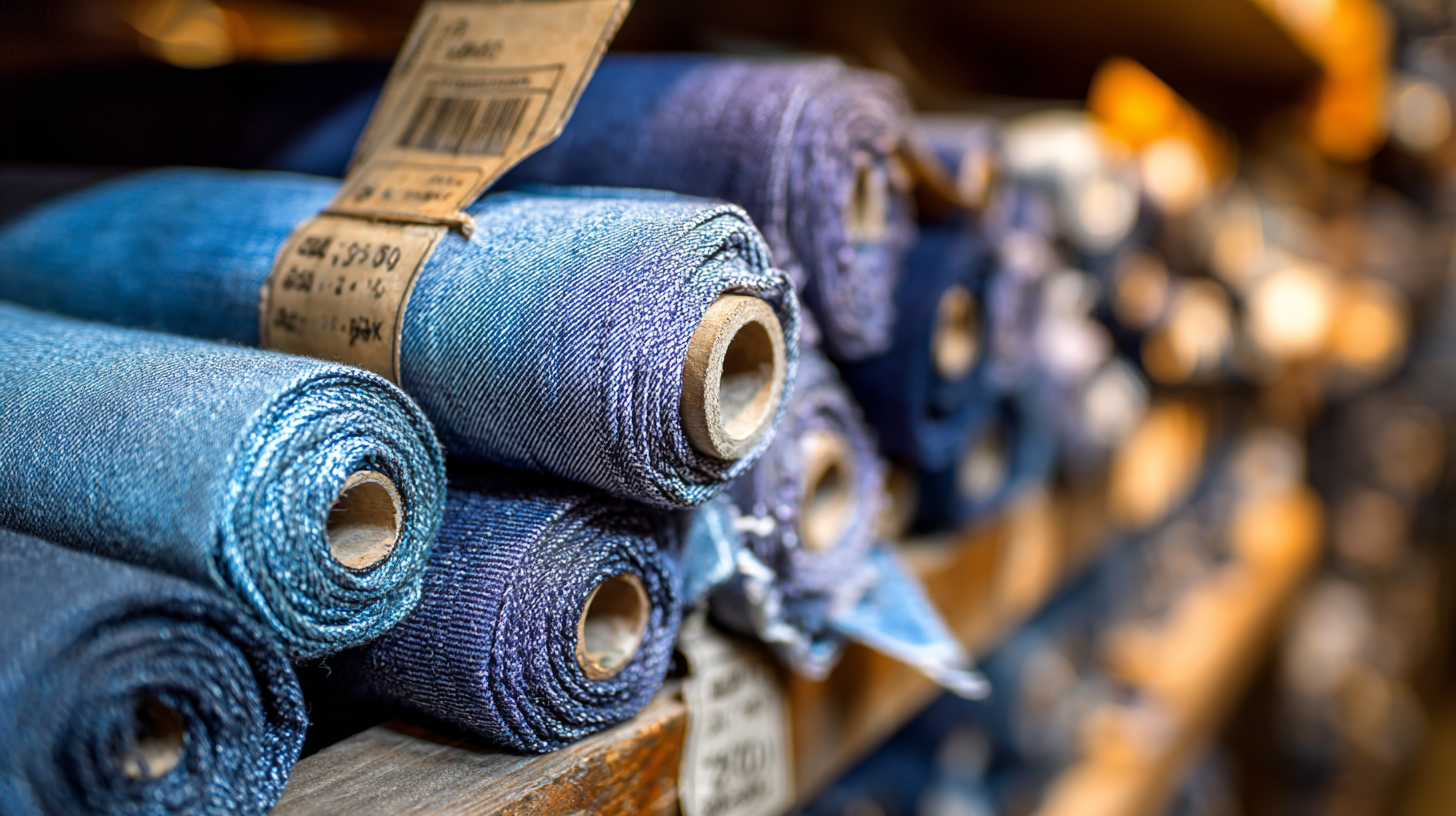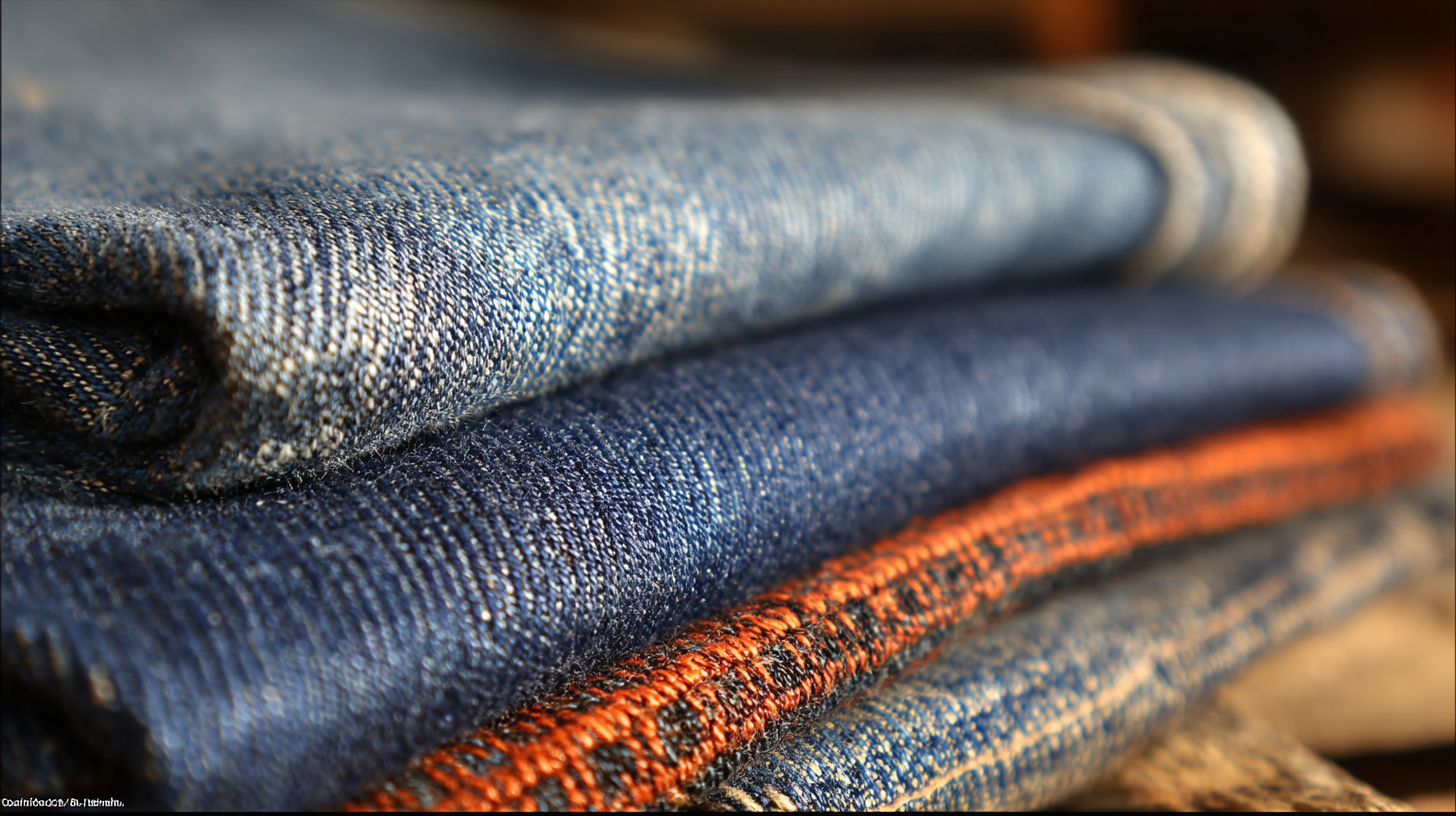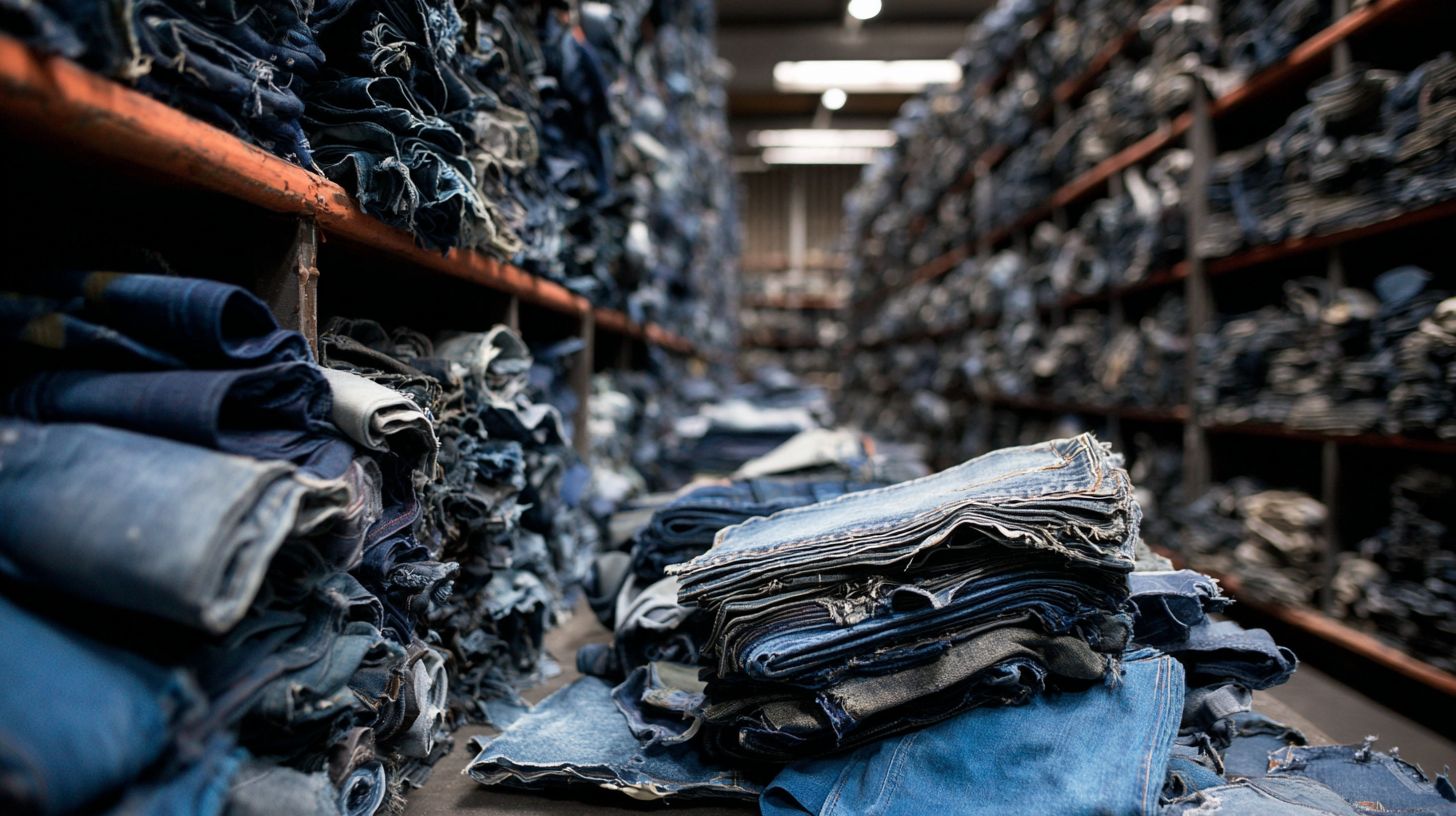In recent years, the fashion industry has seen a significant shift towards sustainable practices, with an increasing demand for eco-friendly materials like recycled denim fabric. According to a report by the Global Fashion Agenda, the global textile recycling market is expected to reach USD 25 billion by 2025, driven by a growing emphasis on circular fashion and reducing textile waste.

When searching for high-quality recycled denim fabrics, it is essential to identify key attributes that define excellence in this eco-friendly material. According to a report by the Sustainable Apparel Coalition, fabric durability, color retention, and overall aesthetic appeal are critical factors influencing consumer choices. Fabrics that undergo stringent quality testing, such as the Martindale abrasion test, ensure they meet durability standards, which is vital for both manufacturers and end-users.
Additionally, the sourcing of materials plays a significant role in the quality of recycled denim. Research by Textile Exchange indicates that obtaining fibers from post-consumer or post-industrial waste not only reduces environmental impact but also enhances the fabric's value proposition. The best suppliers are those who transparently share their sourcing practices, allowing brands to align with sustainability goals.
Look for suppliers who utilize advanced recycling technologies that can effectively transform old denim into new, high-quality fabrics without extensive chemical processing, supporting a circular economy in the textile industry.
The denim industry is currently undergoing a significant transformation towards sustainability, as manufacturers reassess their production processes to minimize environmental impact. This shift is being driven by innovative technologies that focus on reducing water and energy consumption, essential factors in conventional denim production. Through advancements in dyeing processes and the adoption of sustainable materials, brands are working to create denim that aligns better with eco-friendly principles. For example, breakthroughs in dye technology are eliminating the need for harsh chemicals, thus reducing pollution and the overall ecological footprint of producing denim.

Furthermore, major players in the industry are actively exploring the most sustainable yarn options, such as open-end versus ring spun yarn, to achieve lower energy usage and decreased carbon emissions. Collaborations with technology firms have led to exciting new methodologies that enhance both efficiency and ethical practices in denim manufacturing. As we enter 2024, the emphasis on responsible sourcing and manufacturing will undoubtedly shape the future of denim, potentially transforming this beloved fabric into a leader in sustainable fashion.
The collective efforts across the industry signify a promising path toward a more environmentally conscious approach, ensuring that denim maintains its appeal while minimizing harm to our planet.
Recycled denim has gained traction in the textile industry as a sustainable alternative, with various types catering to different applications. According to a report from the Global Recycling Foundation, the production of recycled denim can decrease water usage by up to 95% compared to conventional denim manufacturing. This remarkable efficiency makes it an attractive option for brands aiming to reduce their environmental footprint.
There are primarily two types of recycled denim: mechanically recycled and chemically recycled. Mechanically recycled denim is created by shredding used jeans and then spinning the fibers into new yarn, which is ideal for producing casual wear and robust fabrics. In contrast, chemically recycled denim undergoes a process that decomposes the fabric, allowing for a higher quality output suitable for high-end fashion and technical textiles.
A 2021 study by the Textile Exchange indicated that recycled fibers, including denim, accounted for around 14% of the total global fiber market, highlighting the increasing demand for sustainable materials across various sectors. As brands continue to prioritize eco-friendly practices, the significance and application of recycled denim will undoubtedly expand.
 When sourcing recycled denim fabric, evaluating supplier reliability and ethical practices is crucial. According to the 2022 Sustainable Apparel Coalition report, over 70% of consumers consider sustainability a key factor in their purchasing decisions. As such, brands must prioritize suppliers who adhere to robust environmental standards and demonstrate a commitment to social responsibility. This involves assessing their supply chain transparency and adherence to certifications such as Global Organic Textile Standard (GOTS) and the Responsible Wool Standard (RWS), which ensure that materials are sourced sustainably and ethically.
When sourcing recycled denim fabric, evaluating supplier reliability and ethical practices is crucial. According to the 2022 Sustainable Apparel Coalition report, over 70% of consumers consider sustainability a key factor in their purchasing decisions. As such, brands must prioritize suppliers who adhere to robust environmental standards and demonstrate a commitment to social responsibility. This involves assessing their supply chain transparency and adherence to certifications such as Global Organic Textile Standard (GOTS) and the Responsible Wool Standard (RWS), which ensure that materials are sourced sustainably and ethically.
Furthermore, a study by the Ellen MacArthur Foundation highlights that the fashion industry is responsible for 92 million tons of waste annually, underscoring the necessity of partnering with suppliers who are not just reliable but also innovative in reducing environmental impact. By leveraging supplier evaluations that focus on waste reduction strategies, energy-efficient production processes, and fair labor practices, companies can foster stronger supplier relationships that align with consumer expectations and contribute to a circular economy. Engaging with suppliers committed to these principles can help brands distinguish themselves in a competitive market while promoting a sustainable future for the denim industry.
When embarking on fashion and design projects that incorporate recycled denim, selecting the right material is critical to achieving both aesthetic appeal and sustainability. One essential tip is to research suppliers who prioritize quality and ethical practices. Look for companies that have a transparent supply chain and provide detailed information about their sourcing and production methods. This not only ensures that you are getting high-quality fabric but also aligns your project with ethical standards.
Another key consideration is the fabrication techniques used in the recycled denim. Different treatments and processes can significantly affect the texture and durability of the fabric. It’s advisable to request samples from potential suppliers to evaluate their products firsthand. Pay attention to the comfort and feel of the fabric, as well as its ability to hold color and structure after washing. This hands-on approach will help you make informed decisions that enhance the overall quality of your designs.
Finally, consider the range of colors and finishes offered by the supplier. Recycled denim can come in various shades and styles, which can greatly impact your design vision. Opt for suppliers that provide a diverse selection to ensure you can find the perfect match for your project. Having a clear idea of your design requirements beforehand will streamline the selection process and ensure a successful outcome.
This chart represents the quality metrics of recycled denim fabric focusing on four key dimensions: Durability, Eco-Friendliness, Style Variability, and Cost Efficiency. Metrics range from 0 to 100, providing a clear view of each aspect's score.
